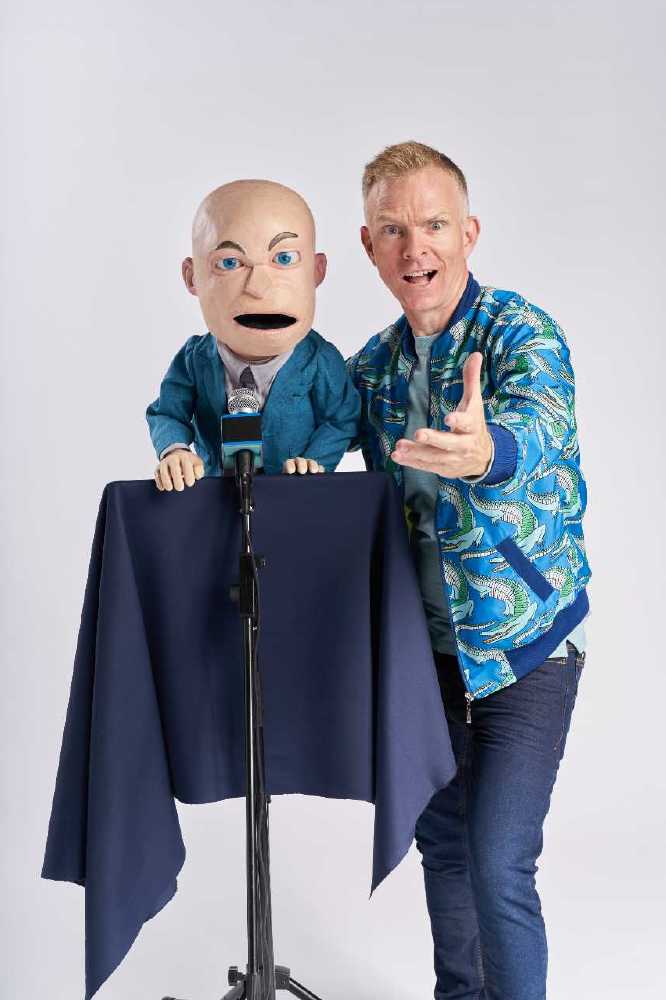Mental health and comedy is a trending concept, and I get why. Look at me for example. I am a ventriloquist who studied anthropology, so I’ve turned talking to myself about myself into a career. Comedy and mental health click as ideas, comedy allows a cathartic release of emotion between performer and audience, and allows comedians to process their feelings, but while that is partially true, it really only just touches on one surface of the actual tensions at play.

Conrad Koch by Stan Kaplan
My South African satirical content on TV and online involves interviewing and mocking, amongst others, black politicians, many of whom were actively involved in the struggle against apartheid, and some even jailed, tortured or forced into exile. Speaking truth to power requires a holistic view of power, the power of white economic wealth that was the point of apartheid (and colonialism) that was never dismantled post-apartheid, the power of elected officials, most of whom are black, in SA that is, the power of voters to make bad choices, the power of audiences that consume comedy, and thereby shape the tastes of what comedy is commercially viable. As white South Africans are still on average 5 times wealthier than black South Africans (and so have ticket buying power, media attention, etc), and as most of the taste makers of what comedy is deemed good in the global market are white, speaking truth to power means almost continuously biting the hand that feeds me. Comedy and mental health have a tense and problematic relationship in my world.
Then we have the concept of mental health itself. The average South African is living on 2 Pounds a day or less. We literally have impoverished black school kids drowning in shit in pit latrines at school, so the very idea of publicly talking about my own white middle class mental health seems indulgent and a luxury. Michael Che alludes to this in his latest Netflix special: the conversation on mental health is often a very racialised and privileged one.
This tension has shaped my work profoundly. In a world where almost everyone is having a harder time that I am, or are utterly oblivious that they are doing very well, as is true for much of white SA, and that I do a job that took a huge amount of entitlement (I literally play with dolls for a living), there’s a kind of quietness and humility I believe I, and white people, in many ways need to adopt. Pushing my own mental health issues to center stage just hides the actual inequality again. Our pain is not equal. I have strategies to manage this. For example, I have two entirely different shows, one that takes on the establishment no-holds barred, and another that is safe and accessible that allows me respite for when I know it’s more than my entitled self can handle.
To put it simply, comedy and mental health are very much a product of who you are, who you are doing comedy for, and what it is you are saying. Comedy is not a magical heal-all. It’s a tool that can be as much our salvation as our undoing.

